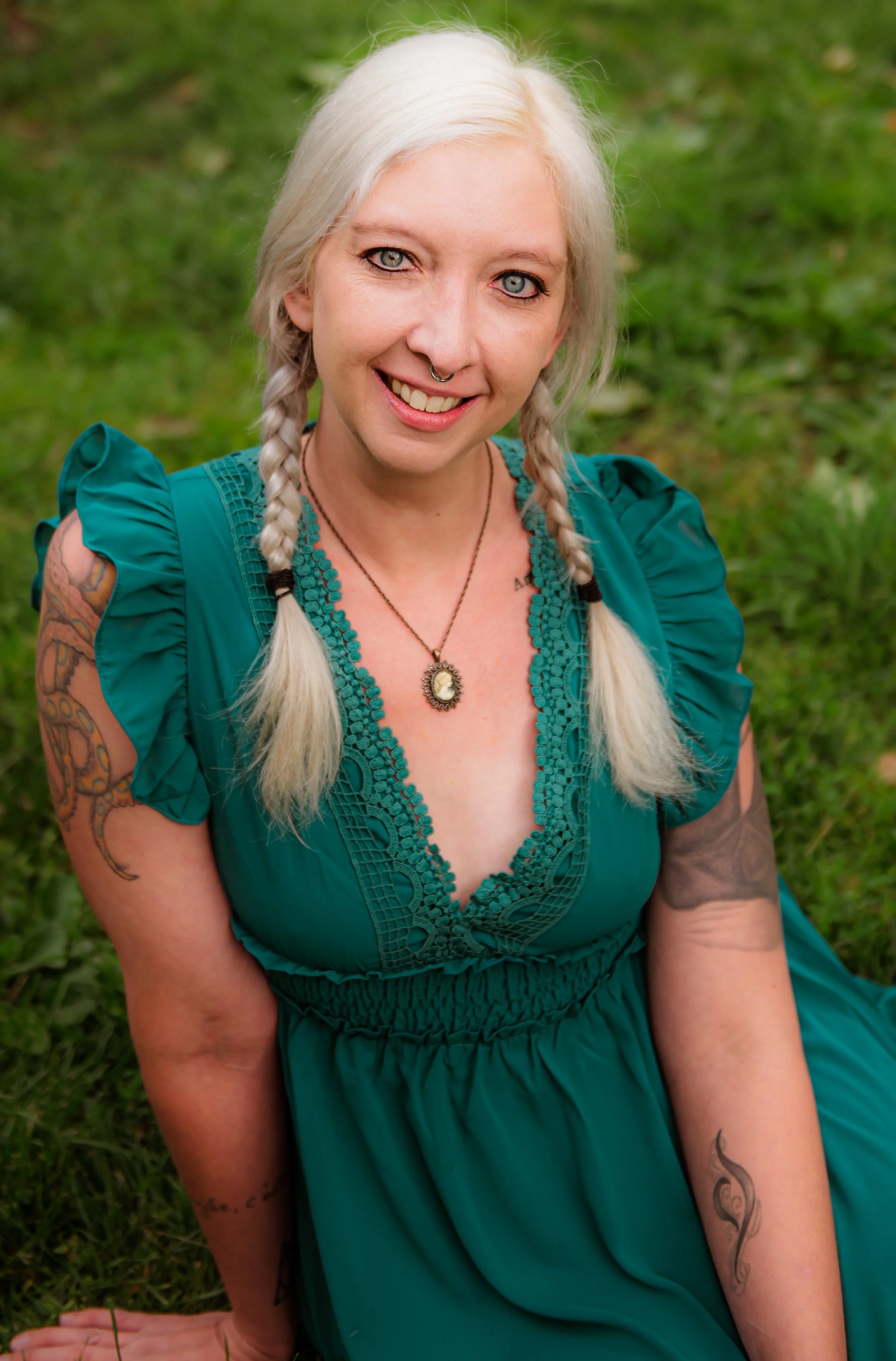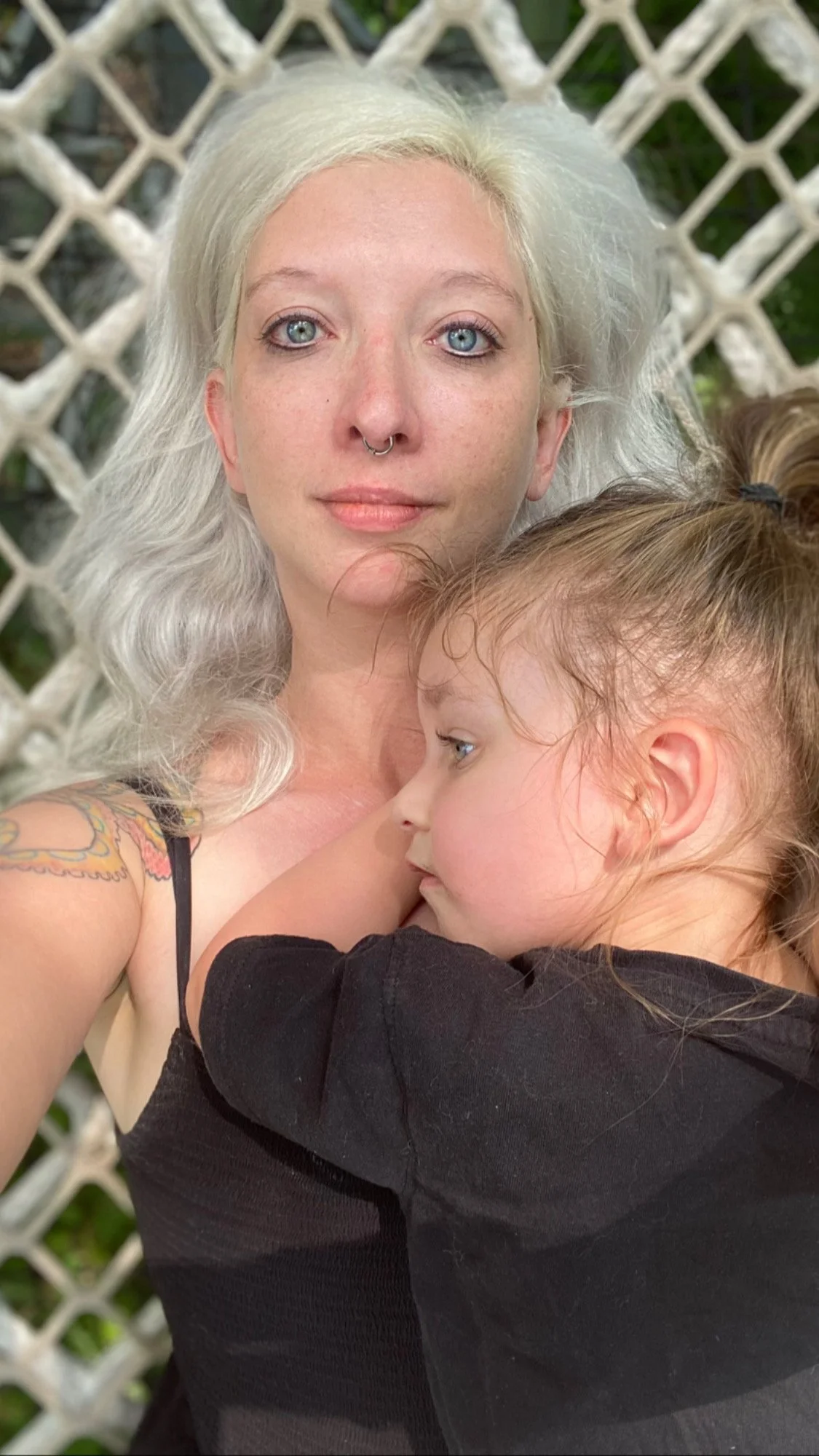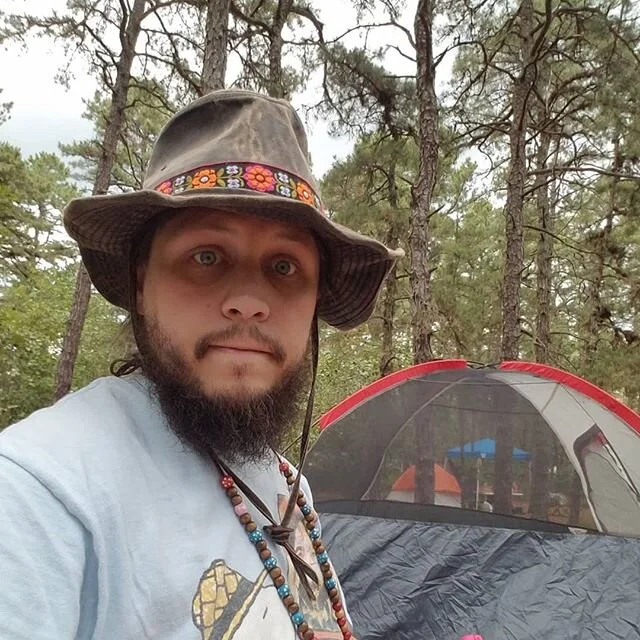Jan Brady Syndrome Is a THING, and Also, No One Likes Me
by Shannon Frost Greenstein
Growing up
an impressionable mass (mess?) of opinions and dreams
lodged solidly between sisters with big breasts and big
feelings,
my little breasts and smaller feelings
never seemed to measure up.
The second of three girls
practically identical in so many ways
all my accomplishments paling in comparison
to the sibling who accomplished them first;
my (invisible?) struggles hardly comparable
to those of the one who came after.
In a natural environment
of finite resources and conditional love
we battled for affection; for attention; for affirmation;
we battled for worth.
Neither the earliest nor the last,
I feel like I’ve been fighting (forever?) the longest.
Birth order dictated
which children would be the favorites
and the future played out accordingly;
until undiagnosed mental illness
neglected all this time
finally shined a light on a middle child
after a night of alcohol and (too many) pills.
Bad attention is still attention.
And now, nearly 40, I am once again 11
desperately seeking notice
starving for validation
as I am excluded from Christmas plans
and (deliberately?) neglected in group texts.
And now, nearly 40, I am still convinced
no one likes me best (they don’t)
and I am never enough (I’m not)
just like no one ever liked me best
and I was never enough.
Because who really cares about (Shannon) Jan Brady
when there are Marcias and Cindys around?
Do you have a specific process? How do you generate new work?
My writing is very feast-or-famine. When I am in the right headspace, I will get lost in the computer for hours and forget to eat. If I am not feeling motivated, however, or if reality has narrowed my bandwidth to the point where writing is a chore, I cannot put two coherent sentences together. My process, by necessity, has evolved to work around this obstacle. For me – if I’m paying enough attention – the world is a constant source of inspiration for stories or poems; I generate most of my work from my own lived experience. I therefore collect these ideas for weeks in a haphazard system of post-its and iPhone notes and Word Documents consisting of disjointed sentence fragments until I am driven to flesh out any of these concepts further.
Many of your poems are both emotionally heavy and humorous. How do you achieve this balance?
I have been very open in writing about my struggles with mental illness and childhood trauma. After a lifetime of internalizing shame for a number of mental health conditions, I finally accepted that I am no more broken than a diabetic who requires insulin to function. Since that point, I have attempted to speak candidly and honestly about my mental health, in order to combat the stigma and further the conversation about life with mental illness. I believe an important part of that discussion has to be embracing the humor and absurdity and irony and schadenfreude and laughter that lie right alongside the darkness and the suffering and the angst…or else there is only the darkness and the suffering and the angst. At the end of the day, I am grateful to be alive – even though life really sucks sometimes – and I try to express that through my writing.
You have a background in studying philosophy (specifically Nietzschean Continental Philosophy). Does this influence or make its way into your poetry?
Studying Philosophy irrevocably changed how I think and how I view the world, so it is impossible to separate that influence from my body of creative work. I spent an unfathomable amount of money studying a whiny existentialist in an attempt to find personal happiness and professional success. Although that plan crashed and burned, it did teach me to think and write in a way that taps into many of our communal human experiences. Nietzsche wrote, “If we affirm one single moment, we thus affirm not only ourselves but all existence…and in this single moment of affirmation, all eternity is called good, redeemed, justified, and affirmed.” My writing is informed by this sentiment, in which all the bad shit we’ve experienced in the past is the reason we can feel joy in the present.
What is important to you as a writer? What do you hope your work achieves?
I spent a great deal of time immersed in metaphorical darkness, and thus I hope my work serves as a source of comfort for those in a similar position. If there is any redemption to be found in my own trauma, it is that sharing my experiences might impact someone lost in a similar haze. I also hope to highlight all the joy amidst the mundane and all the gratitude amidst the sorrow, because the only choice we really have in this world is how we react to the circumstances we are given.
As a fellow-parent of young kids, I know the roles of parent and poet don’t always work in tandem. How do you make time for or merge these identities?
I am, thus far, wholly unsuccessful in merging these two identities. When I am writing, I feel guilty for not parenting. When I am with my children, I feel guilty for not writing. There is never enough time to attend to each activity, and there are never enough opportunities to succeed at both. But at the same time, the children are still flourishing; at the same time, the poems are still being written. And at the same time, I am happy and fulfilled. To be both a mother and a writer is to be constantly in flux, to be perpetually behind, to be doing your best and still never be enough. And once in a while…when the stars align, when the writing is going well, when your child is awarded the Student of the Month…it feels, for the briefest of moments, like you’re actually doing ok with everything after all.
Where can readers find more of your work/buy your books?
Most of my work can be found on my website, shannonfrostgreenstein.com. My debut poetry collection from Really Serious Literature, These Are a Few of My Least Favorite Things, can be preordered here, and I have a collection of short fiction entitled Pray for Us Sinners available from Alien Buddha Press on Amazon. I am also active on Twitter, Instagram, and Facebook.
Shannon Frost Greenstein (she/her) resides in Philadelphia with her children and soulmate. She is the author of These Are a Few of My Least Favorite Things, a full-length book of poetry available from Really Serious Literature, and An Oral History of One Day in Guyana, a fiction chapbook with Sledgehammer Lit due in 2022. Shannon is a former Ph.D. candidate in Continental Philosophy and a multi-time Pushcart Prize and BOTN nominee. Her work has appeared in McSweeney's Internet Tendency, Pithead Chapel, Bending Genres, and elsewhere. Follow Shannon on her website at shannonfrostgreenstein.com or on Twitter at @ShannonFrostGre.
John Wojtowicz grew up working on his family’s azalea and rhododendron nursery in the backwoods of what Ginsberg dubbed “nowhere Zen New Jersey.” Currently, he works as a licensed clinical social worker and adjunct professor. He has been featured on Rowan University’s Writer’s Roundtable on 89.7 WGLS-FM and several of his poems were chosen to be exhibited in Princeton University's 2021 Unique Minds: Creative Voices art show at the Lewis Center for the Arts. He has been nominated 3x for a Pushcart Prize and serves as the Local Lyrics contributor for The Mad Poets Society Blog. His debut chapbook Roadside Oddities: A Poetic Guide to American Oddities was released in early 2022 and can be purchased at www.johnwojtowicz.com. John lives with his wife and two children in Upper Deerfield, NJ.



